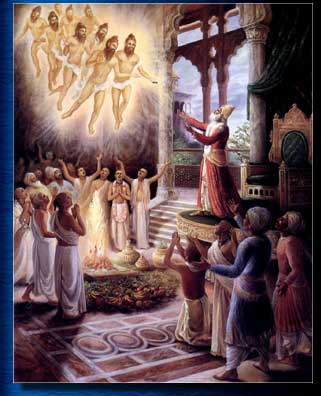
About the College | Schools & Admissions | Contact Us
Home | Resources | Donors | Volunteers | Search
The purpose of Jyotish, is to show us how to use the Vedic knowledge. Let us look at a practical examples of how this could be done. In the Bhagavad-gita 2.14 Lord Krsna says:
matra-sparsas tu kaunteya
sitosna-sukha-duhkha-dah
agamapayino 'nityas
tams titiksasva bharata
“O son of Kunti, the nonpermanent appearance of happiness and distress, and their disappearance in due course, are like the appearance and disappearance of winter and summer seasons. They arise from sense perception, O scion of Bharata, and one must learn to tolerate them without being disturbed.”
The concept seems easy to understand when nothing is troubling us. Problems arise, however, when a devotee is beset by some obstacle or crisis. Then it is a different story because there is a tendency for us to lose our philosophical objectivity. This is where Jyotish can help by returning us to a proper philosophical perspective of things. Jyotish can do this because it deals with time cycles and the science of time in general. Jyotish can thus inform us when a particular effect will begin to manifest, how long it will last, and when it will depart. This allows a devotee to act wisely, to tolerate the situation without being disturbed, because the teaching of the Gita is reinforced by jyotish.
Without this positive reinforcement from jyotish devotees may sometimes react in ignorance. Being caught in the temporary grip of a negative situation a devotee may become depressed, desperate or in some other way mentally disturbed. In such a disturbed state of mind the devotee may act in a negative or destructive way which compounds the negative situation they were in. Eventually the negative situation passes as they always do, but now the devotee has to be responsible for his foolish behavior while in a disturbed mental state.
I'm sure that if you consider your own life you will recognize situations where it would have helped greatly to know that there was going to be light at the end of the tunnel, even if you couldn't see it now. Perhaps you would have acted differently, not out of hopelessness or desperation but out of wisdom and tolerance for your present situation.
